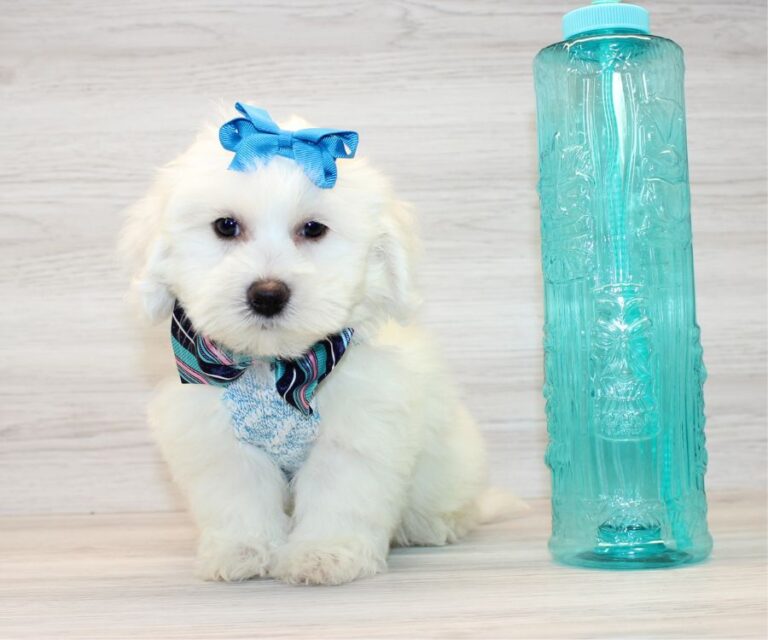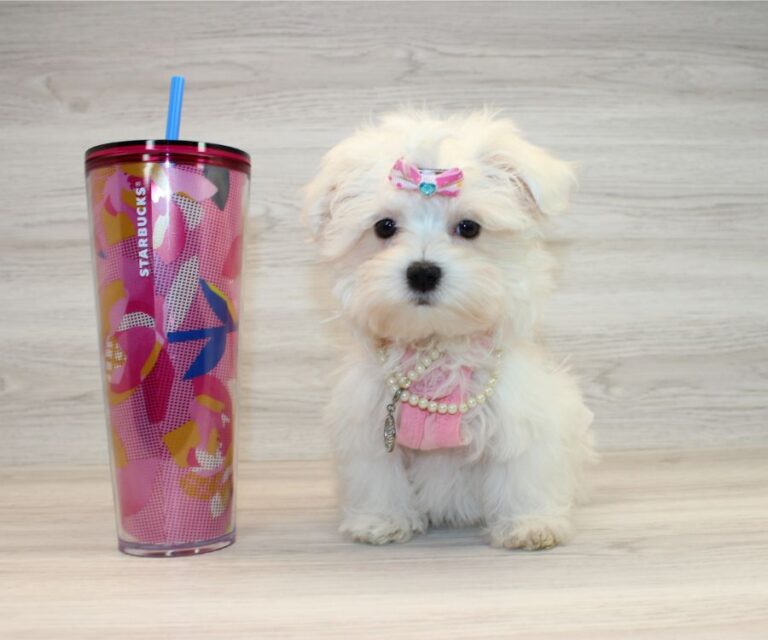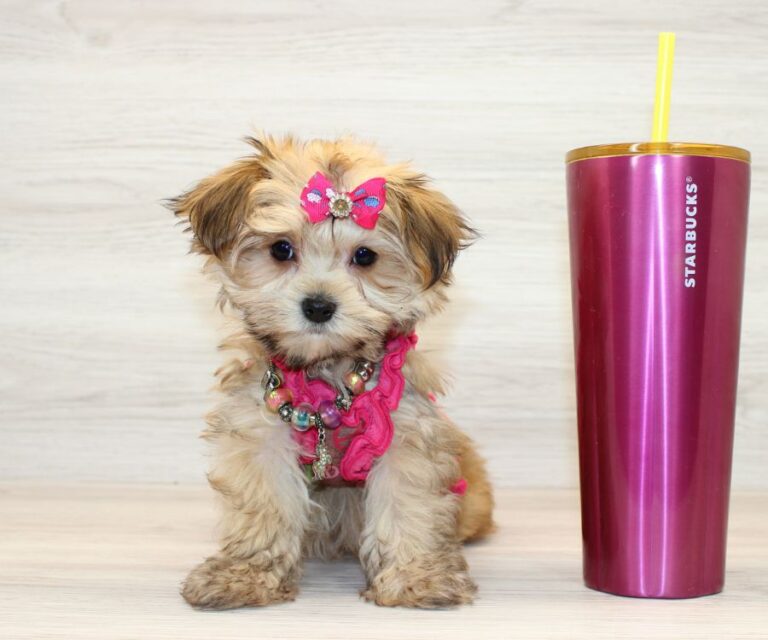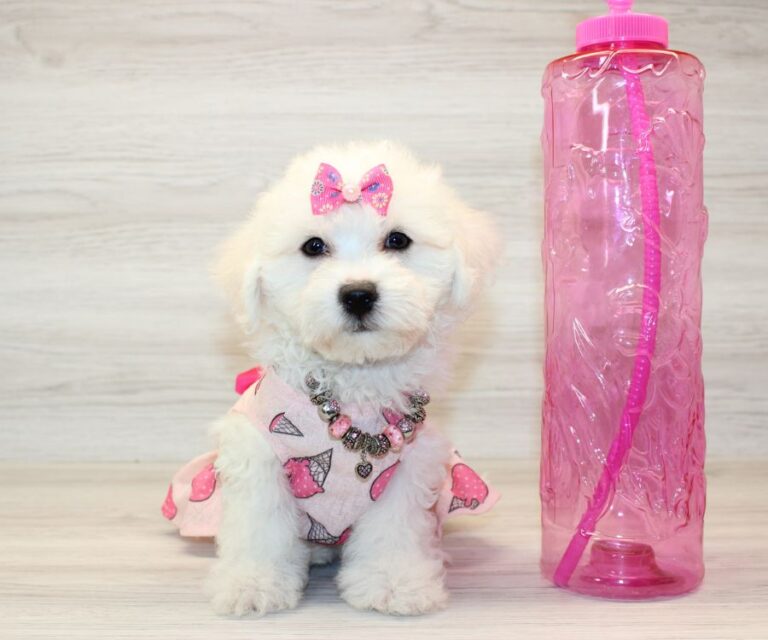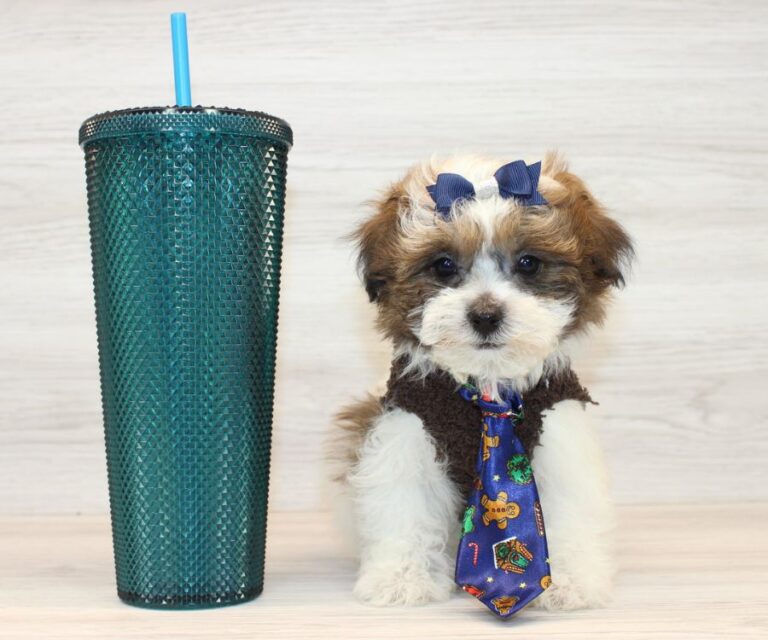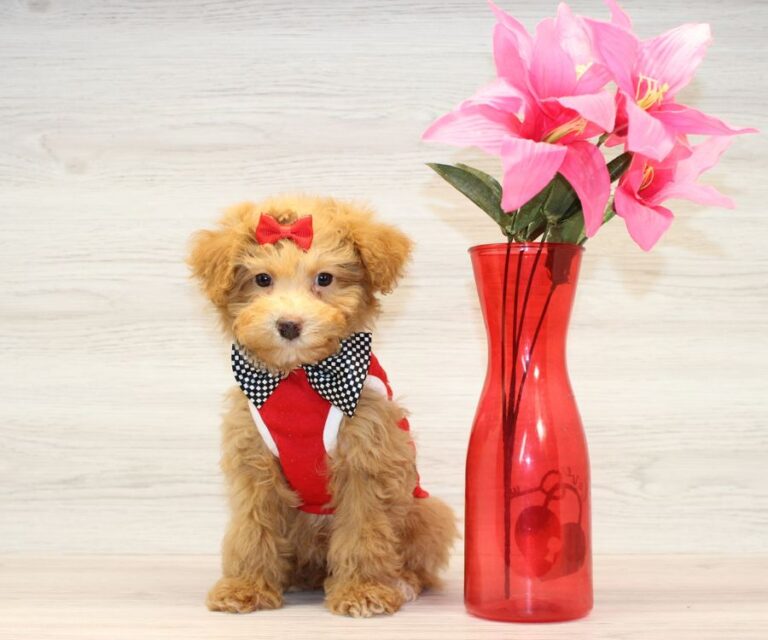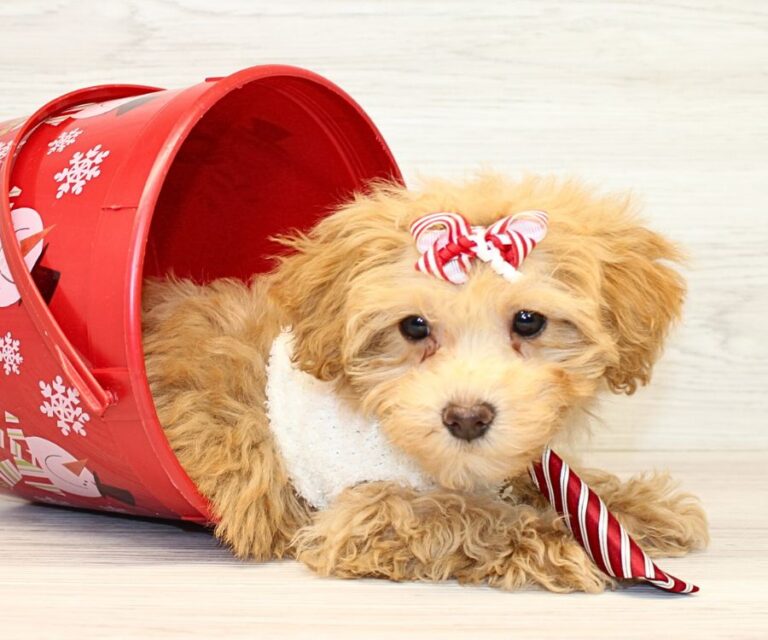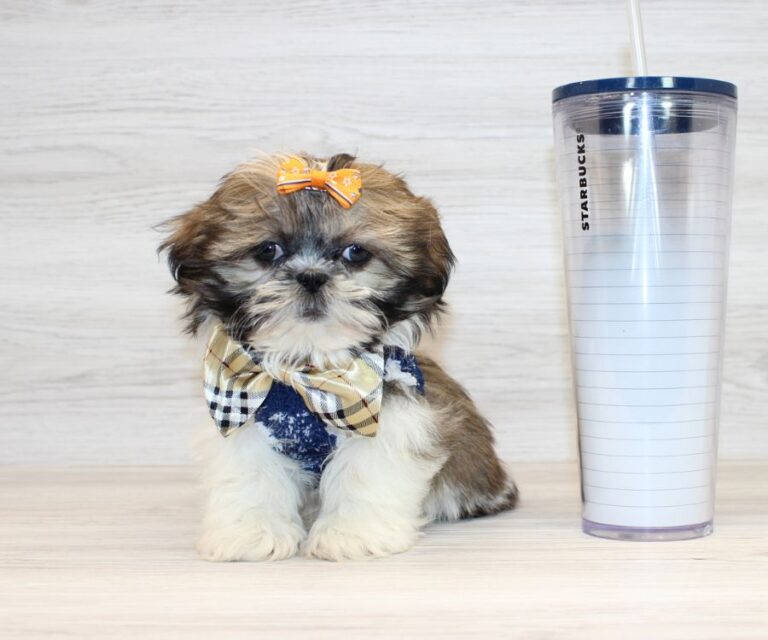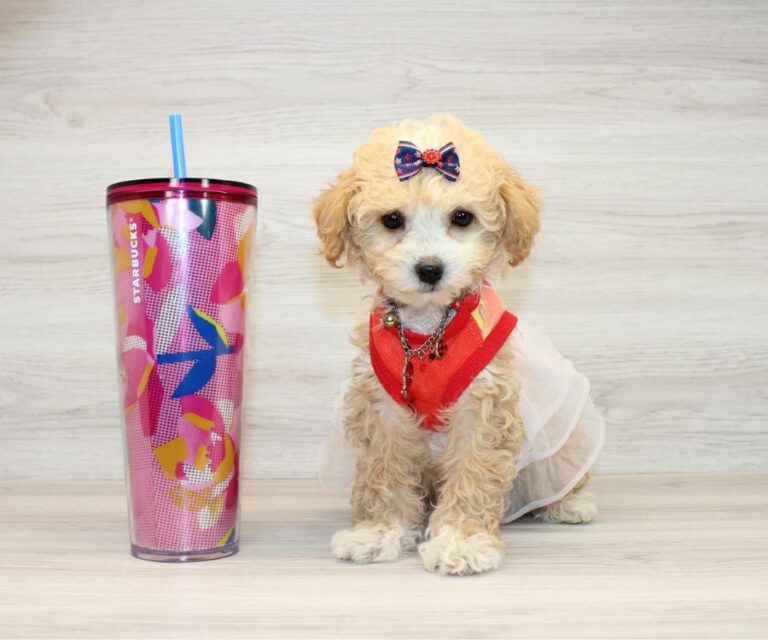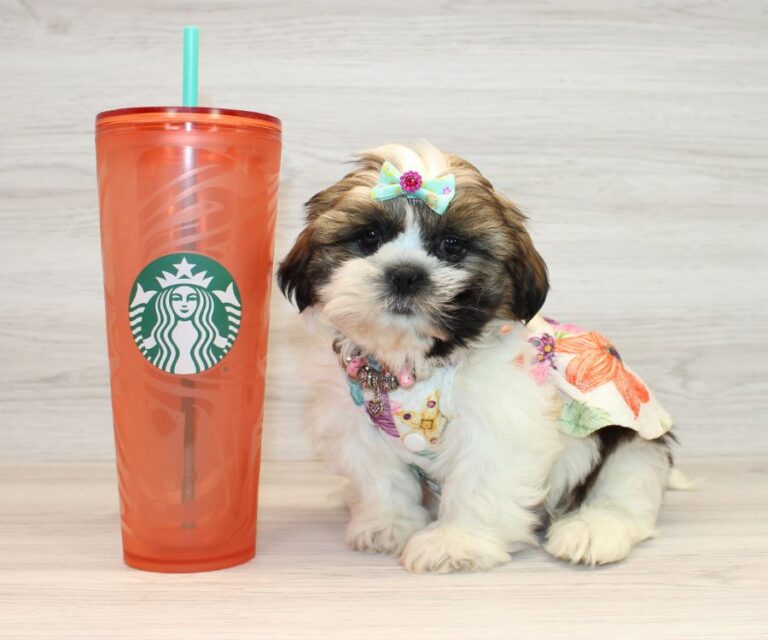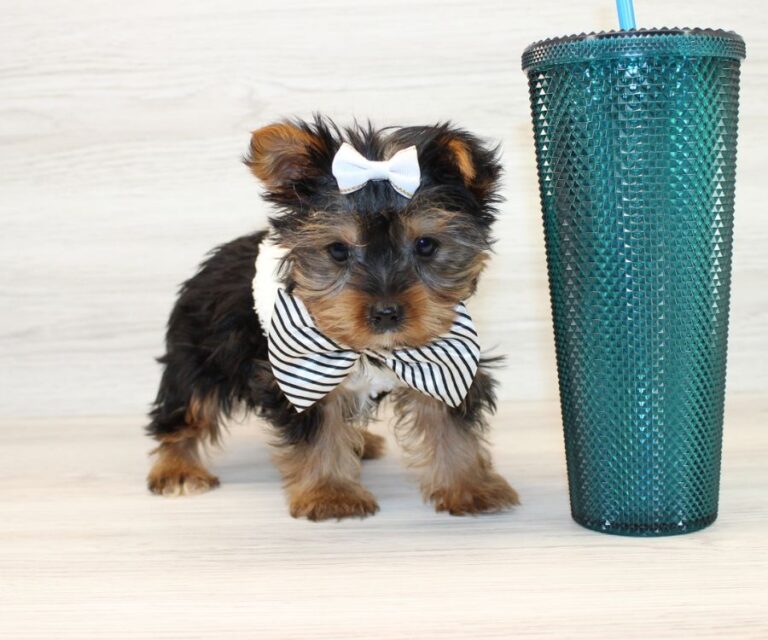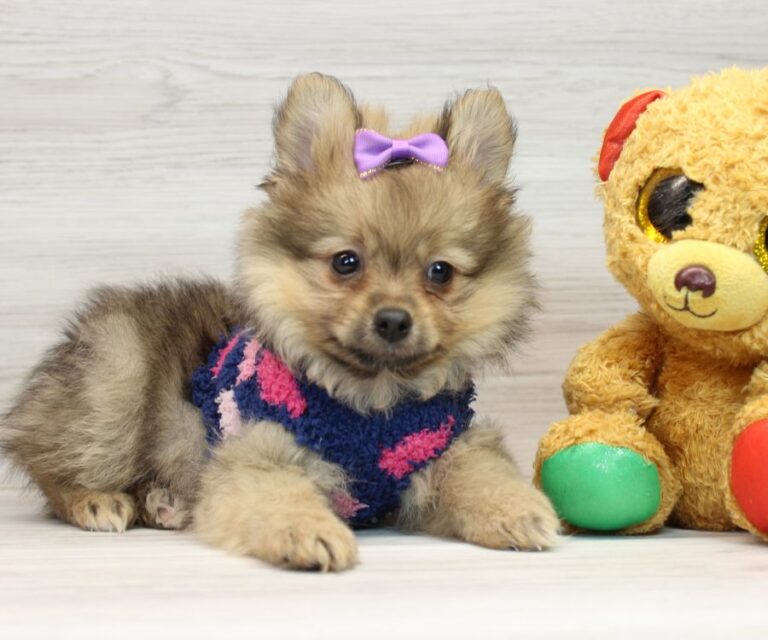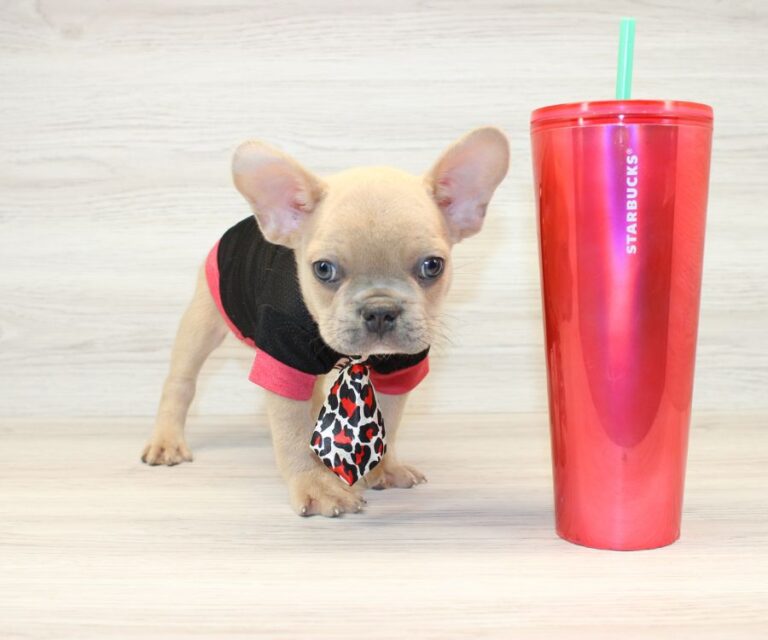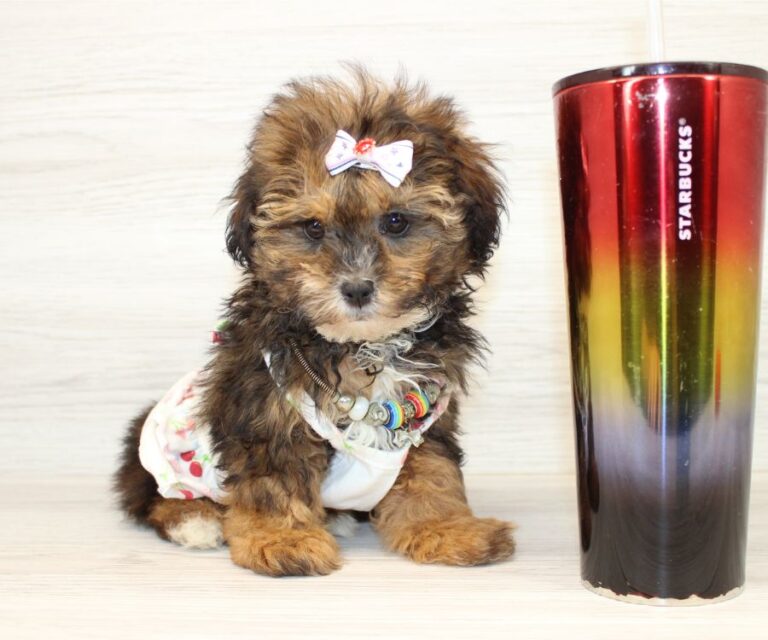At Puppyheaven.com in Atascadero, CA, you’ll discover a variety of toy and teacup puppies, ideal for those with limited living space or frequent travelers. These puppies weigh between 2 to 5 pounds and stand at just 6 to 9 inches tall. Breeds like the Yorkshire Terrier, Shih Tzu, and Pomeranian not only bring a rich history and charismatic spirit but also adapt remarkably well to various living environments. With their keen intelligence and spirited character, these diminutive dogs can enrich your life greatly. Managing their specific health needs and nutritional requirements is essential, and you’ll learn how this enhances their quality of life.
Why Choose Toy and Teacup Puppies?
Toy and teacup puppies offer you a unique blend of companionship and convenience due to their diminutive size and adaptable nature. These smaller breeds typically weigh between 2 to 5 pounds and stand at about 6 to 9 inches tall at maturity, making them ideal for compact living spaces and easier handling. The size benefits extend to travel ease, as you can comfortably bring your pet along using small carriers to various outings and social events.
Their personality traits are as appealing as their physical dimensions. Despite their petite stature, many toy and teacup puppies are known for their vivacious and spirited character. They often display a keen intelligence and a remarkable adaptability to different environments and situations. This makes them excellent companions for people who provide services to others, such as therapists or the elderly, as they can be easily trained for therapy and emotional support roles.
Moreover, their smaller body size demands less food and can lead to lower maintenance costs regarding feeding. They also tend to have a longer lifespan compared to larger breeds, ensuring that their companionship is long-lasting. Engaging with a toy or teacup puppy not only meets a desire to serve but enriches your life with unconditional affection and loyalty.
Popular Breeds at Puppyheaven
At Puppyheaven, several popular breeds captivate potential owners with their distinctive traits and suitability for various lifestyles. Among them, the Yorkshire Terrier stands out with a rich breed history that traces back to 19th century England, where they were initially bred to catch rats in textile mills. Their small size and lively nature make them perfect companions for urban dwellers.
Similarly, the Shih Tzu, with origins from Tibet and heavy patronage by Chinese royalty, exhibits a character suited for those who appreciate a dog with a noble lineage. Their grooming needs are considerable due to their long, luxurious coat which requires regular brushing to prevent tangles and maintain its sheen.
For those inclined towards a slightly more active companion, the Pomeranian, with its roots in the Arctic regions for sled pulling, is now beloved for its vivacious and spirited demeanor. Despite their fluffy appearance, their grooming needs remain manageable with routine care to maintain their distinctive, poofy coat.
Each breed at Puppyheaven offers you the opportunity to serve these delightful creatures by understanding their unique backgrounds and catering to their specific needs. Whether you’re grooming a Shih Tzu or exercising a Pomeranian, you’ll find a fulfilling experience enriching the lives of these charming dogs.
Health Considerations for Small Dogs
When selecting a small dog breed, you must consider specific health issues that can disproportionately affect these petite pets. Genetic predispositions, especially in toy and teacup breeds, include a variety of conditions that could impact their quality of life. For instance, small dogs often face challenges like dental crowding leading to periodontal diseases due to their compact jaw structures. Additionally, their diminutive size predisposes them to hypoglycemia, particularly when they miss meals or expend too much energy without adequate nutrition.
Another significant concern is the risk of luxating patellas, where the kneecap slips out of place, a condition exacerbated by the genetic structure of many small breeds. Heart problems such as mitral valve disease are also more prevalent in small dogs, requiring vigilant monitoring and early intervention.
Considering their exercise needs, it’s important to strike a balance. While they require regular activity to maintain their health and prevent obesity, it’s vital to tailor their exercise regimen to avoid injury and excessive strain on their delicate frames. Engaging them in gentle, yet stimulating activities can help manage their energy levels and contribute positively to their overall well-being. Always consult with a vet to tailor a health and exercise plan that’s ideal for your specific breed’s needs.
Preparing Your Home for a Puppy
Prior to introducing a puppy to your residence, you must make sure your home environment is safe, secure, and conducive to a young dog’s development. Engaging in thorough puppy proofing is vital. Start by securing or removing small objects that could pose choking hazards. Electrical cords should be hidden or covered to prevent chewing, which can lead to electrocution or fire hazards. Toxic plants and household chemicals must be placed out of reach, as many common substances can be lethal to a curious puppy exploring its new environment.
Allergy considerations are also essential when preparing your home for a puppy. If anyone in your household has allergies, you’ll need to choose breeds that are known to be more hypoallergenic and implement a strict cleaning regimen. Regular vacuuming with HEPA filters can greatly reduce pet dander. Additionally, installing air purifiers in key areas can help maintain a cleaner breathing environment, minimizing the impact of allergens.
Lastly, create a designated safe area for your puppy. This should include a comfortable bed, access to water, and plenty of toys that are safe for teething puppies. This setup not only provides comfort but also aids in the important stages of puppy development by ensuring they’ve a secure space to retreat to.
Navigating the Adoption Process
As you begin the adoption process in Atascadero, CA, it’s important to understand the specific requirements set by local agencies. These criteria often include evaluations of your living conditions, a background check, and proof of financial stability to guarantee a supportive environment for the puppy.
Additionally, you’ll need to prepare your home to meet these standards, focusing on creating a safe and nurturing space that promotes the well-being of your new pet.
Understanding Adoption Requirements
Going through the adoption process requires you to meet specific criteria that guarantee the well-being of puppies. Understanding adoption fees is important; these aren’t merely prices but reflect the thorough care, including vaccinations, spaying or neutering, and microchipping, ensuring a healthy start for your new pet.
Additionally, you must navigate legal restrictions, which vary by location but generally include age minimums and proof of residence. These laws are designed to make certain that only committed, capable individuals are entrusted with the care of these vulnerable animals.
It’s essential you familiarize yourself with these requirements early in your adoption journey to facilitate a smooth progression for both you and your puppy.
Preparing Your Home
Once you’ve met the adoption requirements, it’s important to prepare your home to make sure it’s a safe and welcoming environment for your new puppy. Start by evaluating room hazards that could pose risks, such as electrical cords, small objects that can be swallowed, and toxic plants.
It’s vital to reorganize your space, ensuring furniture arrangement minimizes the chances of your puppy getting trapped or injured. Secure loose wires and block off areas where puppies shouldn’t go. Additionally, consider the height and stability of your furniture to prevent your puppy from climbing and potentially falling.
Training Tips for Tiny Breeds
When training your tiny breed puppy in Atascadero, it’s important to understand effective crate training methods that cater to their specific needs.
You’ll need to introduce the crate gradually, ensuring it’s a positive space with comfortable bedding and occasional treats, which helps in reducing anxiety and promoting a safe haven for your puppy.
Additionally, early socialization strategies are essential, involving controlled exposure to various environments, sounds, and people to boost their confidence and adaptability.
Effective Crate Training Methods
To effectively crate train your tiny breed puppy, start by selecting a crate that comfortably accommodates their size and allows them to stand, turn around, and lie down without constraint.
The location of the crate, or crate placement, plays an important role in this training process. Ideally, position the crate in a quiet area but still within sight of family activities to avoid feelings of isolation.
Establishing a consistent night routine is vital; this includes designated times for the last meal, final bathroom break, and bedtime. This consistency helps develop a secure, predictable environment, promoting quicker adaptation to the crate.
Additionally, make sure the crate is equipped with soft bedding and a toy for comfort and stimulation.
Socialization Strategies for Puppies
After mastering crate training, it’s important to focus on socializing your tiny breed puppy to guarantee they develop into well-adjusted adult dogs. Socialization should start early, ideally between three to fourteen weeks of age, where your puppy is most receptive to new experiences.
Organize puppy playdates, as these are instrumental in teaching your puppy appropriate social cues and behaviors with other dogs. It’s also essential to conduct temperament testing. This scientific assessment evaluates your puppy’s behavioral tendencies and predicts future reactions to various stimuli. Understanding their temperament helps tailor socialization practices effectively.
Gradually expose them to diverse environments, sounds, people, and animals, ensuring each experience is positive. This approach nurtures their development into sociable, confident adult dogs.
Puppy Care and Nutrition
Proper nutrition is essential for your puppy’s growth, development, and overall health, requiring a balanced diet rich in essential nutrients. Feeding schedules play an important role in ensuring your puppy receives the right amount of food at the right times, promoting ideal digestion and energy levels. It’s advisable to feed puppies three to four times a day up to six months of age, gradually shifting to twice daily feedings as they grow.
Allergy management is also a critical aspect of puppy care. Identifying and responding to food allergies early can prevent discomfort and more severe health issues. Common symptoms include itching, gastrointestinal upset, and chronic ear problems. If you notice these signs, consult your veterinarian who may recommend an elimination diet to pinpoint the allergen.
Ensure the diet you choose is specifically formulated for puppies, as they require a different nutrient profile than adult dogs. Look for foods that are high in protein and fat to support their rapid growth and high energy needs. Additionally, DHA, found in mother’s milk, is essential for brain and eye development and should be included in your puppy’s diet.
Community Events and Support
Beyond caring for your puppy’s health, engaging in local community events can greatly enhance your and your puppy’s social experiences. Community engagement not only fosters a sense of belonging but also contributes positively to your puppy’s developmental psychology. Socialization opportunities at community events can mitigate behavioral issues like anxiety and aggression in puppies by exposing them to diverse stimuli in a controlled manner.
You can participate in pet-friendly events, which are fantastic for both social and cognitive development of your puppy. Events such as ‘Paws in the Park‘, where you can meet other dog owners, exchange tips, and partake in activities, help in building a community support system. These interactions are beneficial for reinforcing positive behaviors and training consistency.
Moreover, you can initiate or join fundraising ideas aimed at supporting local animal shelters or veterinary health drives. Organizing a ‘Walk-a-thon‘ with an entry fee that goes towards animal welfare not only serves a noble cause but also provides ample exercise for you and your puppy. Such activities amplify communal bonds and underscore the importance of health and wellness in the community.
In essence, integrating into your local community through these events can greatly enrich the lives of both you and your puppy.
Conclusion
As you explore the delightful journey of adopting toy or teacup puppies, remember their unique needs. These tiny breeds require specific care in nutrition, training, and overall wellness to thrive. Guarantee your home is a safe haven, and engage actively in community support networks for invaluable advice and camaraderie.
By understanding and meeting these petite companions’ needs, you’ll establish a loving and healthy environment, fostering a lifelong bond. Choose wisely, prepare thoroughly, and enjoy the enriching experience of puppy parenthood.

